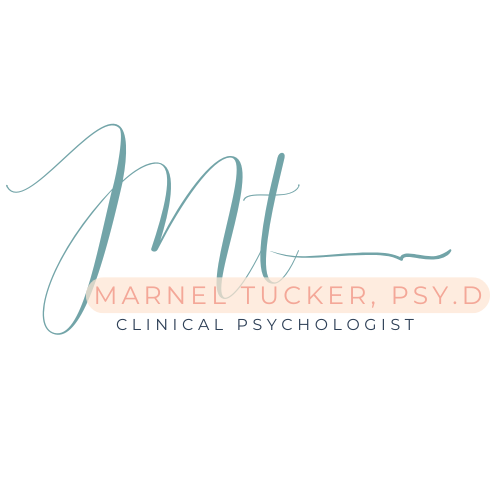When Emotions, Relationships, and Life Feel Overwhelming: Understanding Borderline Personality Disorder
Life can feel overwhelming at times. Emotions can feel all-consuming, relationships can be difficult to manage, and there are days when it seems like you’re just trying to keep your head above water. Maybe you’ve found ways to cope—drugs, sex, food, or self-harm—but those behaviors, even though they offer a temporary escape, still leave you feeling empty. Sometimes, you might even feel like there’s no way out, and thoughts of suicide linger.
You’re doing your best to manage these feelings, but it can feel like you’re playing whack-a-mole with your emotions and behavior patterns. Just when you think you’ve gained control over one aspect, another seems to pop up. If this sounds familiar, you may be struggling with Borderline Personality Disorder (BPD).
What is Borderline Personality Disorder?
Borderline Personality Disorder is a mental health condition characterized by difficulty regulating emotions, resulting in intense emotional experiences and unstable relationships. If you have BPD, you may feel like you’re constantly caught in emotional turbulence, unable to predict when your next mood shift or relationship crisis will happen.
The way you experience the world, your relationships, and even yourself can feel like a roller coaster, and that unpredictability can be exhausting. But the important thing to know is that you are not alone. There is help, and there are ways to manage these feelings so you can live a life that feels more stable, fulfilling, and meaningful.
What Are the Symptoms of Borderline Personality Disorder?
Recognizing the signs and symptoms of Borderline Personality Disorder can be the first step toward healing. If you’re wondering if you or someone you love may be dealing with BPD, here are some common signs:
- Fear of Abandonment: You might constantly worry that people will leave you. This fear can lead you to either avoid relationships altogether, leave them first to avoid being hurt, or make frantic efforts to keep people close. This push-pull dynamic can create tension in your relationships.
- Thinking in Extremes: You tend to see things in absolutes—everything is either good or bad, black or white, all or nothing. This can make it hard to navigate the complexities of life and relationships.
- Feeling Empty: You may not have a strong sense of who you are, which can leave you feeling empty or disconnected, even when, from the outside, your life might look fine.
- Impulsivity: You may find yourself engaging in impulsive, self-destructive behaviors, whether it’s through spending, substance use, reckless driving, or binge eating. These actions are often attempts to numb or distract from overwhelming emotions.
- Suicidal Thoughts or Self-Harm: Struggling with thoughts of suicide or engaging in self-harm can be signs that you are battling something deeper. These are not just cries for help—they are signals that you are in pain and need support.
- Intense, Unpredictable Moods: Your emotions may change quickly and intensely, sometimes without warning. One minute you feel on top of the world, and the next, you’re plunged into deep sadness or anger.
The Whack-a-Mole of Emotions and Destructive Behaviors
One of the most exhausting aspects of BPD is feeling like you’re constantly trying to manage your emotions or keep destructive behaviors at bay. It can feel like you’ve knocked one behavior or emotion down, only for another to rise up. This cycle can leave you feeling like you’re never truly in control.
The good news is that while BPD may feel overwhelming and chaotic, it is treatable. Therapy, particularly specialized forms of therapy for BPD, can help you gain a sense of control over your emotions, relationships, and life.
How We Treat Borderline Personality Disorder
At the core of treating BPD is the need for structured, evidence-based therapies that target emotion regulation, impulsivity, and relationship challenges. If you are struggling with Borderline Personality Disorder, we can help using empirically validated methods such as:
- Dialectical Behavioral Therapy (DBT): DBT is specifically designed to help individuals with BPD manage intense emotions, reduce impulsivity, and build healthier relationships. One of the key elements of DBT is mindfulness—helping you stay present in the moment without being swept away by your emotions. DBT also focuses on distress tolerance, emotional regulation, and interpersonal effectiveness, giving you tools to navigate life’s challenges more effectively.
- Cognitive Behavioral Therapy (CBT): CBT helps you challenge and change unhelpful thought patterns that contribute to emotional distress. By identifying negative thoughts and learning how to reframe them, you can change how you feel and respond to life’s ups and downs.
- Acceptance and Commitment Therapy (ACT): ACT encourages you to accept the thoughts and feelings you cannot change, while committing to actions that align with your values. Instead of fighting against your emotions, ACT helps you focus on what really matters in your life and how to live a more meaningful, purpose-driven existence.
- Mindfulness: Learning to be present, without judgment, is a key aspect of managing BPD. Through mindfulness practices, you can learn to observe your thoughts and feelings without being overwhelmed by them, creating space between your emotional reactions and your actions.
You Are Not Defined by Your Illness
It’s important to remember that you are not your diagnosis. Just like any other mental health challenge, BPD is an illness that affects you—it is not who you are. The emotional ups and downs, the chaotic relationships, the impulsive behaviors—these do not define your worth or your potential.
Healing from Borderline Personality Disorder takes time, but it’s possible. With the right tools and support, you can begin to regain control over your emotions and your life. Therapy can help you build a more stable, fulfilling life—one where you feel grounded, connected, and in control.
Let’s Start the Journey Together
If any of this resonates with you, or if you think you might be struggling with Borderline Personality Disorder, I encourage you to take that first step toward healing. Therapy can provide a safe space to explore your emotions, relationships, and challenges, and together, we can find a path forward.
You don’t have to face this alone. Reach out today to learn more about how we can help or to schedule an appointment. Sometimes, the hardest part is simply starting the conversation. I’m here when you’re ready.

